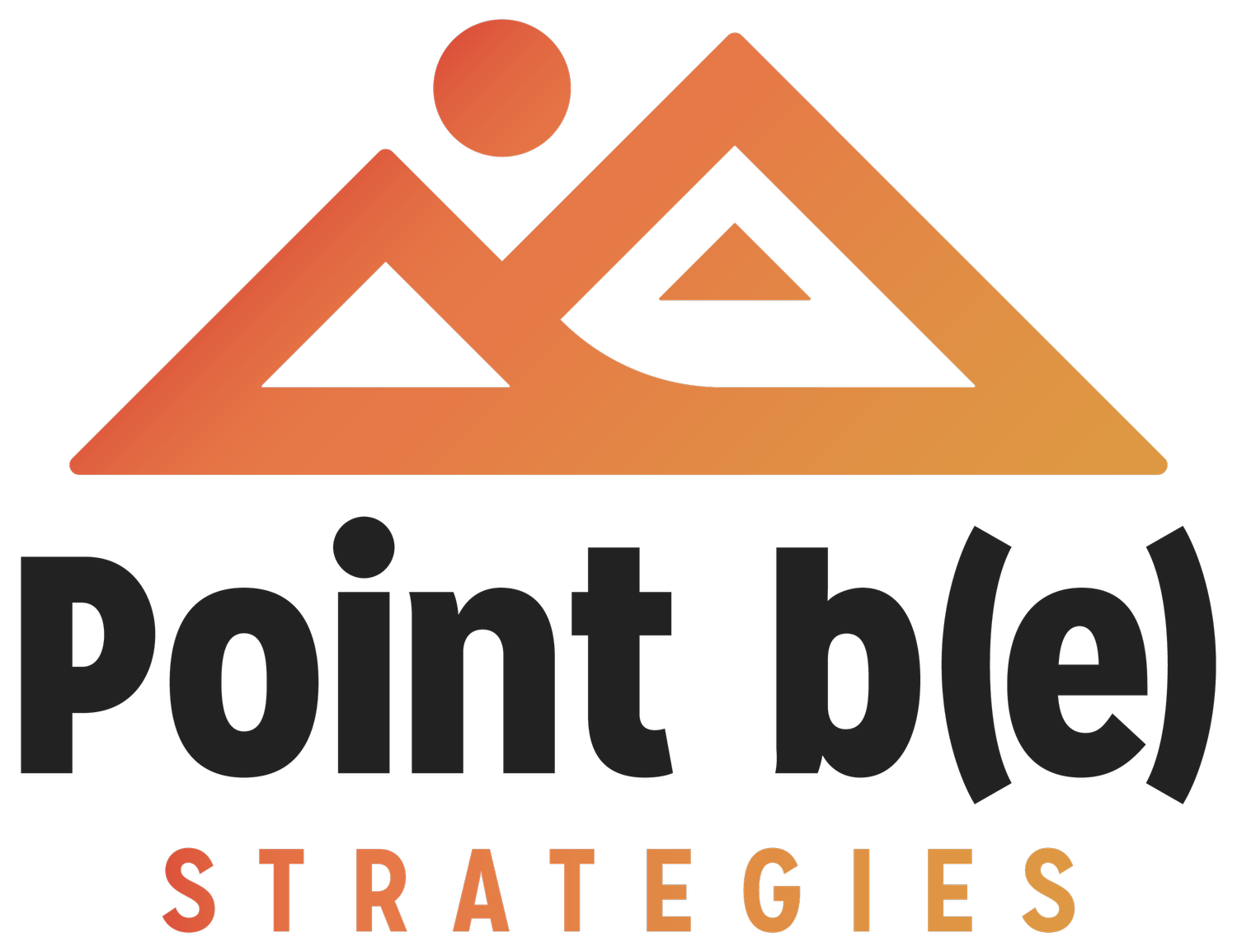Reimagining Our Language: From Stakeholder Engagement to Ecosystem Engagement
by Libby AndersonLanguage forms the way that we relate, understand, and collaborate with one another. At Point b(e) Strategies, we recognize that words carry history, power, and impact. In order to more accurately represent the interconnected and co-creative nature of our work, as well as our values, we are shifting our language of “stakeholder engagement.”
Why We’re Making This Change
The term "stakeholder" has deep colonial roots. Historically, a stakeholder was someone who drove a stake into land to claim it. This land, more often than not, was stolen from Indigenous peoples (M. Reed, 2024). The continued use of this term can perpetuate colonization and cause harm by reinforcing historical injustices. We are committed to using language that respects and honors the communities we serve.
Additionally, the modern concept of a "stakeholder" often does not capture the complexity of the relationships within an organization. The idea of stakeholders—those who impact or are impacted by an organization—suggests a transactional relationship rather than a dynamic, interconnected one (M. S. Reed et al., 2024). As we continue to work with clients, our goal is to use terminology that highlights the relationships woven in and out of their networks.
We also recognize that, ultimately, there is no single universal replacement for the word “stakeholder.” Rather than fixating on a single replacement, our team worked to co-develop language that is person-first and accurately describes those involved. The language we use to describe this process will be tailored to each client. For example, while we may refer to our process as “ecosystem engagement” rather than “stakeholder engagement” for some clients, an environmental justice organization may prefer that we use “community engagement” to avoid confusion. Our work is not just about impact; it is about collaboration, shared purpose, and co-creation of a more just and habitable world!
What This Means in Practice
To further our commitment to person-first language, we will be more specific in identifying who is involved in this process. Instead of defaulting back to “stakeholders,” we will use terms that center relationships and people involved, such as:
People
Groups
Audiences
Members
Board of directors, key staff, and others as needed
Key informants
Collaborators
Interested/affected partners
For example, rather than saying, "We will engage stakeholders in this process," we might say, "Point b(e) Strategies develops and delivers a tailored, active engagement process that supports strategic thinking throughout, while engaging multiple audiences within the organization’s ecosystem, such as volunteers, staff, and board members."
This transition is a conscious step toward the use of language that upholds our values of equity, integrity, and partnership. It embodies our approach to engagement, not as a transactional exchange, but as an ongoing, interconnected process that acknowledges the complexity of relationships within an organization. As we update our materials and continue conversations, we remain committed to fostering relevant, meaningful, person-first engagement that genuinely reflects the true nature of the communities we serve.
References/Further Reading:
Reed, M. (2024, May 10). Should we banish the word “stakeholder”? Fast Track Impact. https://www.fasttrackimpact.com/post/why-we-shouldn-t-banish-the-word-stakeholder
Reed, M.S., Merkle, B.G., Cook, E.J. et al. Reimagining the language of engagement in a post-stakeholder world. Sustain Sci 19, 1481–1490 (2024). https://doi.org/10.1007/s11625-024-01496-4
